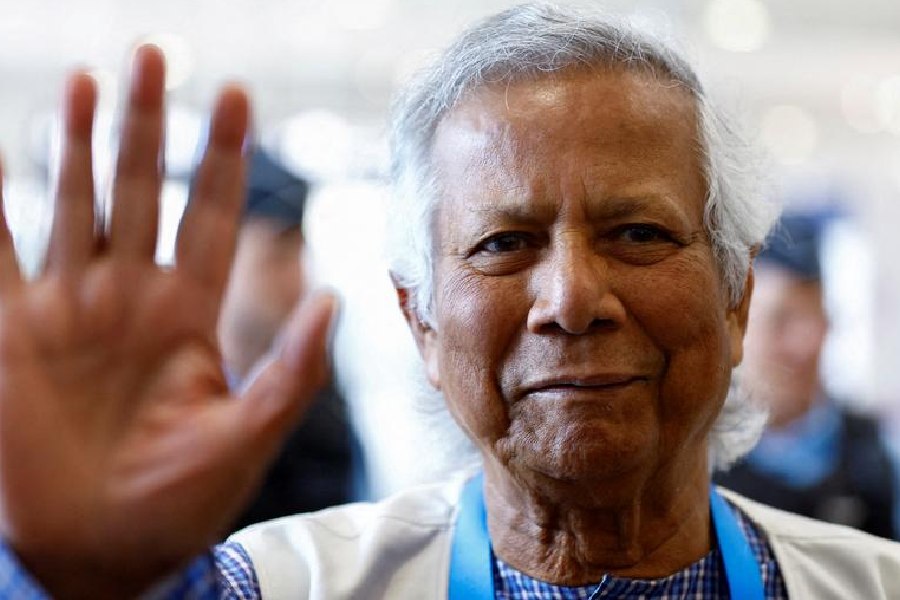Muhammed Yunus is on his way back to Bangladesh from Paris to lead an interim government, following more than 15 years of rule by ousted former prime minister, Sheikh Hasina.
Nobel Peace Prize winner Muhammed Yunus was expected to return to Bangladesh on Thursday to take office as the head of an interim government after a student-led uprising forced Sheikh Hasina to end her more than 15-year rule.
Yunus, 84, could be sworn in as soon as Thursday evening — marking the beginning of what the army chief pledged would be a "beautiful democratic process."
Just a week ago, the Bangladeshi military was shooting at students protesting against Hasina's government, killing at least 300 people.
The lauded professor is currently the only name that instills confidence in students and citizens, Bangladeshi journalist Mainul Islam Khan told DW in an interview. He added that people were "eagerly waiting for him to take charge of the country."
Once sworn in, Yunus is set to face huge challenges, Khan said. "The first challenge is to restore security in the country to send the students back to the classrooms and the people back to their homes."
Another is to fill positions in several key government positions where officials have resigned in the last few weeks.
The biggest challenge, however, is to fulfill the students' key demand — reform in all sectors.
"It is very early to say how much time he will need to reform the important sectors including the Election Commission and then call for an election," Khan said.
"Be calm and get ready to build the country," Yunus said Wednesday in a statement before beginning his journey back home. "If we take the path of violence everything will be destroyed."
"I'm looking forward to going back home, and see what's happening and how we can organize ourselves to get out of the trouble we are in," Yunus told reporters at Paris airport on Wednesday.
The 84-year-old hopes to hold elections within a few months.
Earlier on Wednesday, a tribunal in Dhaka acquitted Yunus in a labor law violation case that many believed to be politically motivated. He was sentenced to six months in prison but he had been allowed to remain on bail while filing an appeal.
Another rival of Hasina, former Prime Minister Khaleda Zia, also saw her conviction overturned by presidential decree on Tuesday, letting her hold her first public address in six years.
While the protests originally focused on quotas in government jobs, they quickly morphed into an anti-Hasina movement once she deployed the forces against civilians.
The military eventually turned on Hasina after weeks of violent clashes, forcing the prime minister to flee to neighboring India in a helicopter.
However, the military switched sides over the weekend and Hasina was forced to flee to neighboring India.
Protestors celebrated her political demise by storming her official residence Ganabhaban, in Dhaka. Thousands engaged in vandalism and looted everything on site from raw food to clothes, furniture, art and gadgets. A further 100 people were killed as violence continued after Hasina's departure.
The military then agreed to students' demand to install Yunus — winner of the 2006 Nobel for his work in microfinancing — as the interim leader.











